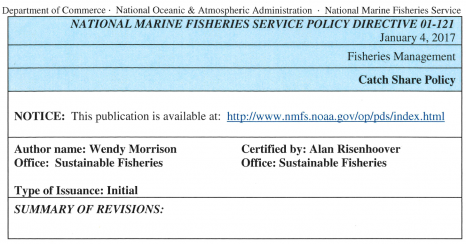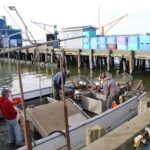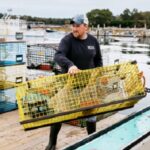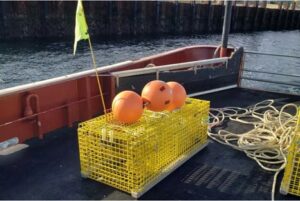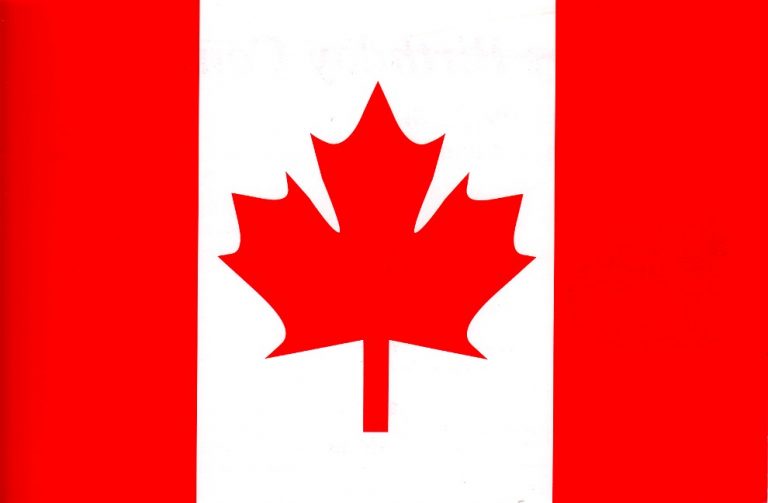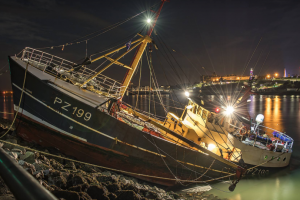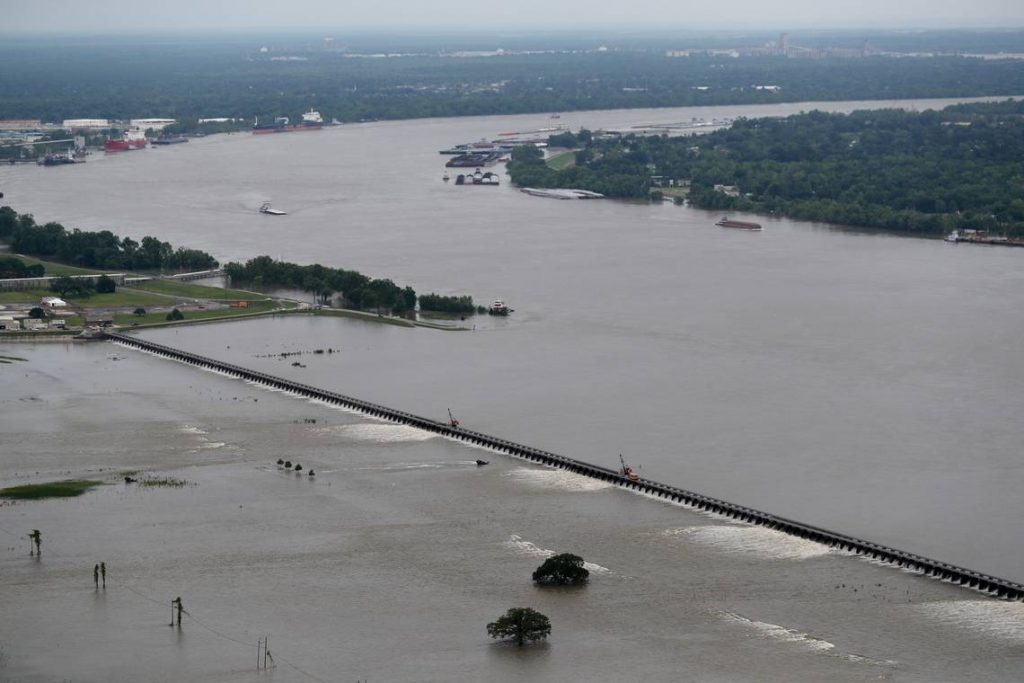Daily Archives: February 28, 2017
Commerce Secretary Wibur Ross’ side project: Make America first on seafood
 Wilbur Ross is expected to emerge as the Trump administration’s leading voice on trade after the Senate votes tonight to confirm him as Commerce Department secretary. He’s already singled out a surprising pet project: Reducing America’s reliance on seafood imports. “Given the enormity of our coastlines, given the enormity of our freshwater, I would like to try to figure out how we can become much more self-sufficient in fishing and perhaps even a net exporter,” the 79-year-old billionaire businessman said at his confirmation hearing in January. That would be a big job for anyone, since 85 percent, or some $20 billion, of seafood consumed in the U.S. comes from abroad. America is the second-largest seafood market after the 28-nation European Union, and the U.S. seafood industry runs an $11 billion trade deficit. continue reading the rest here 20:39
Wilbur Ross is expected to emerge as the Trump administration’s leading voice on trade after the Senate votes tonight to confirm him as Commerce Department secretary. He’s already singled out a surprising pet project: Reducing America’s reliance on seafood imports. “Given the enormity of our coastlines, given the enormity of our freshwater, I would like to try to figure out how we can become much more self-sufficient in fishing and perhaps even a net exporter,” the 79-year-old billionaire businessman said at his confirmation hearing in January. That would be a big job for anyone, since 85 percent, or some $20 billion, of seafood consumed in the U.S. comes from abroad. America is the second-largest seafood market after the 28-nation European Union, and the U.S. seafood industry runs an $11 billion trade deficit. continue reading the rest here 20:39
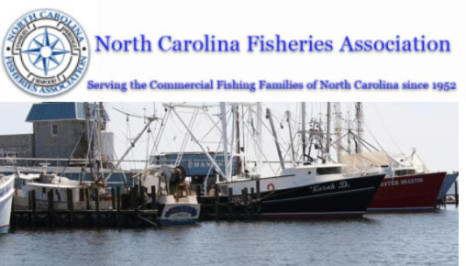
North Carolina Fisheries Association Weekly Update for Februay 27, 2017
Click here to read the Weekly Update, to read all the updates, Click here 17:32
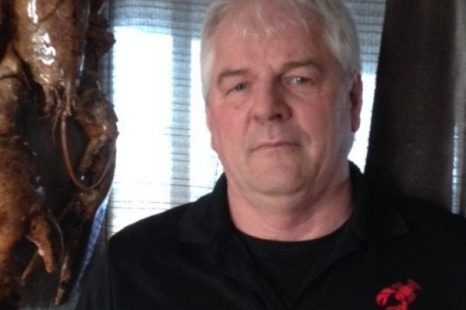
Prince Edward Island Fishermen’s Association names Bobby Jenkins new president
The new president of the Prince Edward Island Fishermen’s Association is entrusting the decision-making responsibilities of the 1,280-member organization in the hands of his board of directors. “You’ve got to work with your board of directors and take your direction from them,” Annandale fisherman Bobby Jenkins said Monday following his weekend election. He takes over from Craig Avery who did not re-offer following two and a half years at the helm. “I congratulated Craig for doing the same thing. I felt Craig took great direction from the board, and I said I don’t intend to do it any differently,” Jenkins said in reference to comments he made to membership during the association’s annual meeting. continue reading the story here 15:35
Next Labour Relations Board hearing on fight between FFAW and FISH-NL set for Thursday
 The Labour Relations Board has another hearing scheduled this week in the ongoing battle to represent inshore fish harvesters in the province. Last week, the board ruled the Federation of Independent Sea Harvesters of Newfoundland and Labrador (FISH-NL) is indeed a legitimate organization after the Fish, Food and Allied Workers (FFAW-Unifor) union had challenged the legality of the group. The board will next decide on whether or not FFAW-Unifor’s membership list of inshore harvesters should be made available to FISH-NL. The number of inshore harvesters is vital in determining whether FISH-NL’s submission of 2,352 signed membership cards meets the 50 per cent required to force a vote by the board to determine who will represent the fishers. Ryan Cleary is urging all harvesters to attend the Thursday hearing. Link 14:52
The Labour Relations Board has another hearing scheduled this week in the ongoing battle to represent inshore fish harvesters in the province. Last week, the board ruled the Federation of Independent Sea Harvesters of Newfoundland and Labrador (FISH-NL) is indeed a legitimate organization after the Fish, Food and Allied Workers (FFAW-Unifor) union had challenged the legality of the group. The board will next decide on whether or not FFAW-Unifor’s membership list of inshore harvesters should be made available to FISH-NL. The number of inshore harvesters is vital in determining whether FISH-NL’s submission of 2,352 signed membership cards meets the 50 per cent required to force a vote by the board to determine who will represent the fishers. Ryan Cleary is urging all harvesters to attend the Thursday hearing. Link 14:52
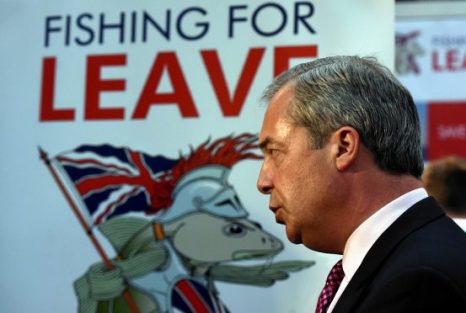
Farage takes centre-stage in fishers’ Brexit policy launch
Nigel Farage will team up with former UK Government minister Owen Paterson for the launch of Fishing For Leave’s Brexit manifesto in London today. A spokesman for the organisation said it would make clear the “constitutional realities and extrication process” needed to make sure UK control over fishing is “automatically repatriated and not betrayed as negotiating capital a second time”. He added: “This policy advocates a radical new approach of a fit-for-purpose days-at-sea management regime suitable to the UK’s rich highly mixed fisheries. “It ends the cause of the abhorrent practice of mass discarding caused by EU quotas and provides a framework to rejuvenate coastal communities that have suffered so much.” continue reading the article here 13:23
Alaska asks US Supreme Court to overturn decision giving Cook Inlet salmon management to feds
The state is asking the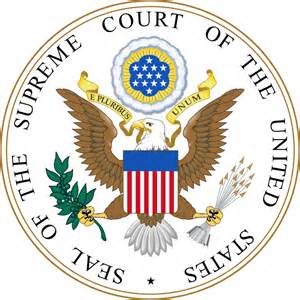 US Supreme Court to overturn an appeals court decision putting the federal government in charge of the salmon fishery in Cook Inlet rather than Alaska. The case began in 2013 when two commercial fishing groups — the United Cook Inlet Drift Association and the Cook Inlet Fishermen’s Fund — sued the National Marine Fisheries Service. They argued that the state had not adequately managed the fishery and that the federal government should exercise more control as designated in the Magnuson-Stevens Fishery Conservation and Management Act. A U.S. District Court judge initially ruled in favor of state management. But in September, the 9th U.S. Circuit Court of Appeals ruled that the federal government — not the state — should exercise management of the Cook Inlet salmon fishery in federal waters. continue reading the story here 12:19
US Supreme Court to overturn an appeals court decision putting the federal government in charge of the salmon fishery in Cook Inlet rather than Alaska. The case began in 2013 when two commercial fishing groups — the United Cook Inlet Drift Association and the Cook Inlet Fishermen’s Fund — sued the National Marine Fisheries Service. They argued that the state had not adequately managed the fishery and that the federal government should exercise more control as designated in the Magnuson-Stevens Fishery Conservation and Management Act. A U.S. District Court judge initially ruled in favor of state management. But in September, the 9th U.S. Circuit Court of Appeals ruled that the federal government — not the state — should exercise management of the Cook Inlet salmon fishery in federal waters. continue reading the story here 12:19
Latest DFO stock assessment unveils a poor outlook for snow crab
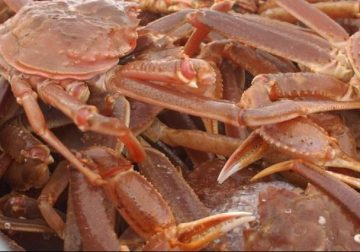 It’s not a pretty picture. In a technical briefing Monday, Darrell Mullowney, lead scientist for snow crab in the NL region for the Department of Fisheries and Oceans (DFO) said the latest stock assessment on snow crab in the Newfoundland and Labrador region shows an overall 40 per cent decline in exploitable biomass from 2015-16. Since 2013, the decline of exploitable biomass has been 80 per cent. Exploitable biomass refers to the crab that are adult, and of legal size — a shell size greater than 95 mm — for commercial fishing. The DFO numbers come from their own trawl surveys — one in fishing zones off the south coast each spring, and the other in northern fishing areas in the fall — as well as from reports from observers on commercial fishing vessels, the log books of the crab fishing fleets, and trap surveys conducted by DFO in inshore areas. The decline in crab stocks, explained Mullowney, is due to two major factors: warming water temperatures and groundfish. continue reading the story here 11:04
It’s not a pretty picture. In a technical briefing Monday, Darrell Mullowney, lead scientist for snow crab in the NL region for the Department of Fisheries and Oceans (DFO) said the latest stock assessment on snow crab in the Newfoundland and Labrador region shows an overall 40 per cent decline in exploitable biomass from 2015-16. Since 2013, the decline of exploitable biomass has been 80 per cent. Exploitable biomass refers to the crab that are adult, and of legal size — a shell size greater than 95 mm — for commercial fishing. The DFO numbers come from their own trawl surveys — one in fishing zones off the south coast each spring, and the other in northern fishing areas in the fall — as well as from reports from observers on commercial fishing vessels, the log books of the crab fishing fleets, and trap surveys conducted by DFO in inshore areas. The decline in crab stocks, explained Mullowney, is due to two major factors: warming water temperatures and groundfish. continue reading the story here 11:04
Federal Court of Canada – Legal challenge threatening autonomy of inshore fishery opens today
 The Federal Court of Canada will begin hearing a test case today in Ottawa that could overturn a decades-old policy that prevents a corporate takeover of inshore fishing licences in Atlantic Canada. The seafood processing industry, inshore fishermen’s groups and the Department of Fisheries and Oceans (DFO) are all watching the case closely, albeit with very different expectations. “The stakes are important because we have seen other fisheries be taken over by corporations and it leaves less money in the hands of individuals and communities,” said Melanie Sonnenberg, president of the Canadian Independent Fish Harvesters Federation. The Federal Court case centres on Kirby Elson, a fisherman from the Labrador community of Cartwright, N.L. Elson was stripped by DFO of his snow crab licence in 2015 when he refused to exit a controlling agreement with fish processor Quinlan Brothers and a related company. Under the 2003 agreement, the company controlled the licence and the wealth it generated. Quinlan Brothers paid the licence fee, provided the vessel and crew, and paid for the insurance and maintenance. continue reading the story here 09:10
The Federal Court of Canada will begin hearing a test case today in Ottawa that could overturn a decades-old policy that prevents a corporate takeover of inshore fishing licences in Atlantic Canada. The seafood processing industry, inshore fishermen’s groups and the Department of Fisheries and Oceans (DFO) are all watching the case closely, albeit with very different expectations. “The stakes are important because we have seen other fisheries be taken over by corporations and it leaves less money in the hands of individuals and communities,” said Melanie Sonnenberg, president of the Canadian Independent Fish Harvesters Federation. The Federal Court case centres on Kirby Elson, a fisherman from the Labrador community of Cartwright, N.L. Elson was stripped by DFO of his snow crab licence in 2015 when he refused to exit a controlling agreement with fish processor Quinlan Brothers and a related company. Under the 2003 agreement, the company controlled the licence and the wealth it generated. Quinlan Brothers paid the licence fee, provided the vessel and crew, and paid for the insurance and maintenance. continue reading the story here 09:10
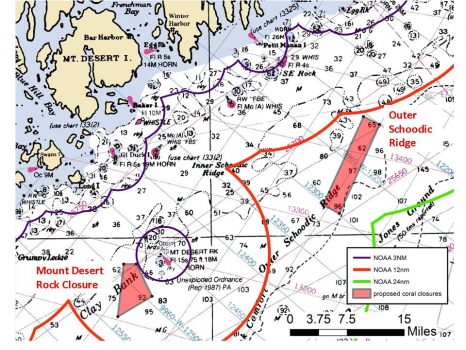
Potential coral protection rules could have big impact on Downeast lobstermen
The New England Fishery Management Council has put rules to protect deep sea corals on the fast track, rules that will have a major impact on lobstermen — primarily from zones A and B with some from Zone C — who set their gear around Mount Desert Rock and Outer Schoodic Ridge. The council is considering management measures to reduce impacts to corals from commercial fishing activities in three areas in the Gulf of Maine. One of the proposals would impose a total ban on fishing in the protected areas which, according to an analysis the Department of Marine Resources submitted to the council several months ago, are located in waters that produce about one-third of Maine’s lobster landings in terms of value. Now DMR is asking lobstermen who fish in the potentially closed areas for information that will help the department in its efforts to prevent the fishing bans. continue reading the article here 08:38
Sierra Club’s claims about Chumash Heritage National Marine Sanctuary are deceptive
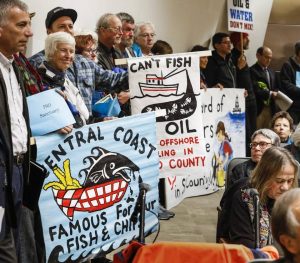 The local Sierra Club and other environmental groups are either ignorant or deceptive when they say the Chumash Heritage National Marine Sanctuary will not have an effect on the local fishing industry. They are asking us to simply “trust them” as they “promise” us that the new sanctuary won’t lead to more regulations on our overburdened fishermen and women. So, if they want us to “trust them,” let’s look at the way similar sanctuary designations have affected fishing industries along the coast. continue reading the op-ed here 08:01
The local Sierra Club and other environmental groups are either ignorant or deceptive when they say the Chumash Heritage National Marine Sanctuary will not have an effect on the local fishing industry. They are asking us to simply “trust them” as they “promise” us that the new sanctuary won’t lead to more regulations on our overburdened fishermen and women. So, if they want us to “trust them,” let’s look at the way similar sanctuary designations have affected fishing industries along the coast. continue reading the op-ed here 08:01






